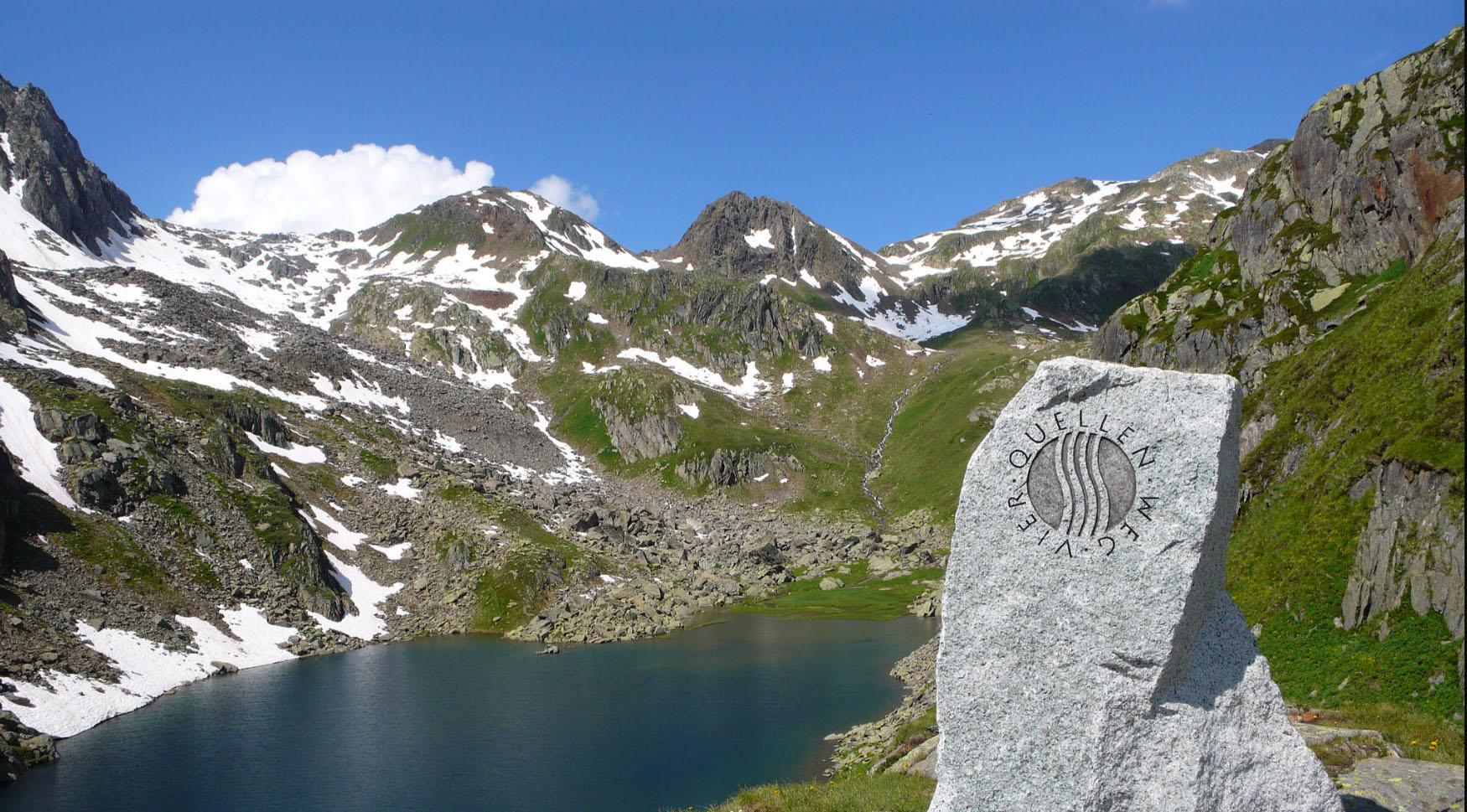Poems of Friedrich Hölderlin
The Rhine
— To Isaak von Sinclair
I sat in the dark ivy at the forest’s gate
Just as golden noon came down to visit
The spring from the steps of the Alps,
The divinely built citadel of the gods,
As I hear from ancient legends,
Where much that is devised in secret
Comes to men. Unsuspecting,
I learned from there something purposeful,
For scarcely as I deliberated upon many things
In the warm shadows
My mind drifted off to Italy,
And to the distant coasts of Morea.*
But now in the mountains,
Deep below the silver cliffs
And delightful greenery,
Where the shivering forests
And the cliff tops one over another
Look down upon him all day long,
There in a frigid chasm I heard
A youth clamoring to be set free.
His compassionate parents heard him
Roaring and reproaching
His mother, the Earth,
And his creator, the Thunderer.
Mortals however fled from the place,
For the rage of the demi-god
Was terrible, as he thrashed about
In chains in the darkness.
It was the voice of the noblest
Of rivers, the freeborn Rhine.
His hopes changed when he parted
From his brothers,
The Ticino and the Rhone,**
For he wanted to travel off,
And his kinglike spirit urged him
Impatiently toward Asia.
But intentions can't be understood
When confronted by Fate.
Humans know where they’re at home,
And animals know where to build one,
But sons of the gods are blindest of all,
When the failure of knowing where to go
Is given to inexperienced minds.
Continues German text Home All poems
Notes

Photo of officially designated Rhine source in the Swiss canton of Graubünden by Flickruser Ralf Flecken.
From January to April 1801, Hölderlin worked as a home tutor in Hauptwil, Switzerland, where he likely came upon the idea to write a poem about the Rhine River, eventually published in 1808. The longest of his four "river poems," it also belongs to the group known as the Late Hymns. Following Pindaric tradition the text is divided into sequences of triads, three strophes per web page in this Internet format. The poem is dedicated to his friend Sinclair, whom Hölderlin first met as a student in Tübingen and who crucially came to his assistance after the return from Bourdeaux.
* The Morea (Greek: Μορέας or Μωριάς) refers to the Peloponnese peninsula of southern Greece, a term used during the Middle Ages and the early modern period.
** Names of two other rivers that rise in the Swiss Alps; the Ticino flows to Italy and the Rhone to France. Changing course from its original orientation, the poet suggests that the Rhine's first instinct is to set off for Asia, the source of civilization.
Website and Translations Copyright © 2022 by James Mitchell